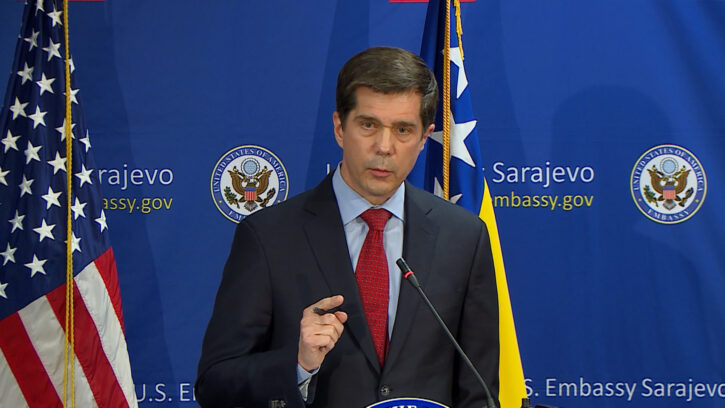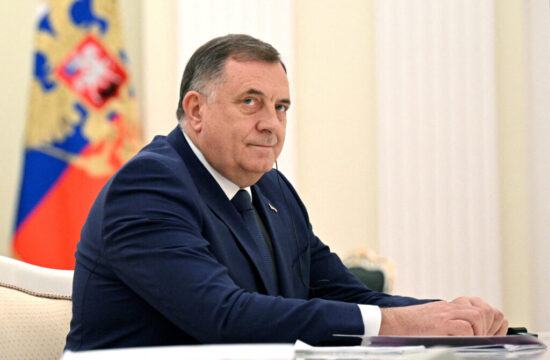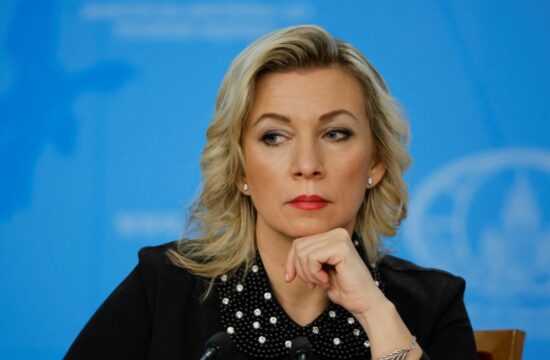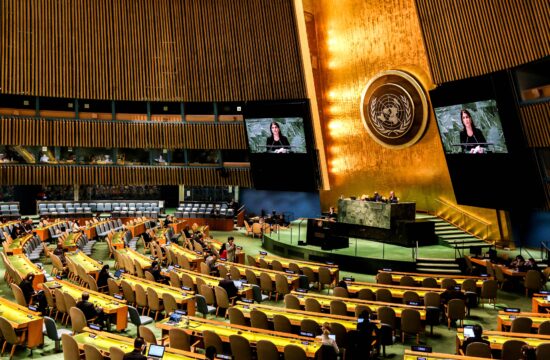
The US does not consider that the ongoing talks between Serbia and Kosovo have anything to do with Bosnia, the newly appointed US Ambassador in Bosnia, Eric Nelson, said in Sarajevo on Thursday in his first press conference after taking office.
“The US position is clear that there is no parallel between the negotiations taking place between Serbia and Kosovo and Bosnia and Herzegovina,” he said.
The statement refers to concerns that a possible swap of territories between Pristina and Belgrade may lead to more changes of borders in the region, particularly those of Bosnia and Herzegovina.
“What similarities do exist and what’s needed across the region is political courage and foresight to make important compromises to improve the security of the region,” he said, adding that such compromises “must always respect the sovereignty and territorial integrity of this country.”
Nelson also said that the US takes “the negative influences of Russia” which he said continues to “try to destabilise” the country “very seriously,” adding that Russia has done so “in Montenegro and elsewhere” as well.
“We’re working hard to counter that and get the right message out about how the United States is a true friend of Bosnia and Herzegovina, and I look forward to spending a lot of time travelling the country, talking to citizens here about that,” he said.
The new US Ambassador pointed out that Russia is “an important partner” in the Peace Implementation Council (PIC), which is the international community body tasked with overseeing the implementation of the 1995 Dayton Peace Agreement that ended the war.
The US and Russia “need to agree on BiH’s path forward,” he said.
“And that path forward, which all citizens here have endorsed, is toward integration into Euro-Atlantic institutions,” Nelson said, adding that there is “a good consensus here” that the partnership with NATO is valuable for the country and should continue.
Bosnia’s integration into NATO is a divisive topic between the representatives of the three major ethnic groups in the country.
While the Bosniaks and Bosnian Croats want the country to become a member of the alliance, most Bosnian Serb politicians are against it.
The Chairman of Bosnia’s tripartite Presidency, Bosnian Serb leader Milorad Dodik, has voiced numerous times that he will not support the country becoming a member of the Alliance.
According to Bosnia's political system, representatives of the three major ethnic groups in the country must reach a consensus in order for any decision to be made.
The disagreement was also the main reason for Bosnia still lacking a new government following the October 2018 Election.
“I think there is room for agreement because it’s very clear that US interest and NATO interest is to protect the peace here in Bosnia and Herzegovina,” Nelson said, adding that “that is something that President Dodik said to me when he accepted my credentials.”
“He thanked the US for helping to end the war and restoring peace,” he said.
Nelson stressed that the US will “continue to be a guarantor of Bosnia and Herzegovina’s sovereignty and territorial integrity.”
“My top priority will be helping Bosnia and Herzegovina to achieve progress toward its declared goals of becoming a member of NATO and the EU,” he said.
But submitting Bosnia’s Annual National Plan, the step toward NATO membership which Bosnian officials are currently discussing, “does not make Bosnia a member of NATO,” he said. “It is simply a step forward in the partnership and a lot of work still lies ahead for the coming years.”
Nelson said he arrived in the country at a time when “Bosnia and Herzegovina is reaching a very important point on that path to securing a promising future” and when “the necessity for reforms is becoming more pressing.”
“The need for courageous, forward-looking leadership is even more critical. Empty promises and rhetoric alone will become even more futile. We are here to help, but the responsibility to progress rests with the actions of BiH leaders, and with the citizens to hold leaders accountable,” he added.
The key issues Bosnia is facing, according to Nelson, are corruption, unemployment and a weak economy.
He also spoke about inter-ethnic relations in the country.
“We must honour the past and never forget the victims – on all sides – who died during the last war, and those that preceded it. But polarising rhetoric keeps old wounds open,” he said.




